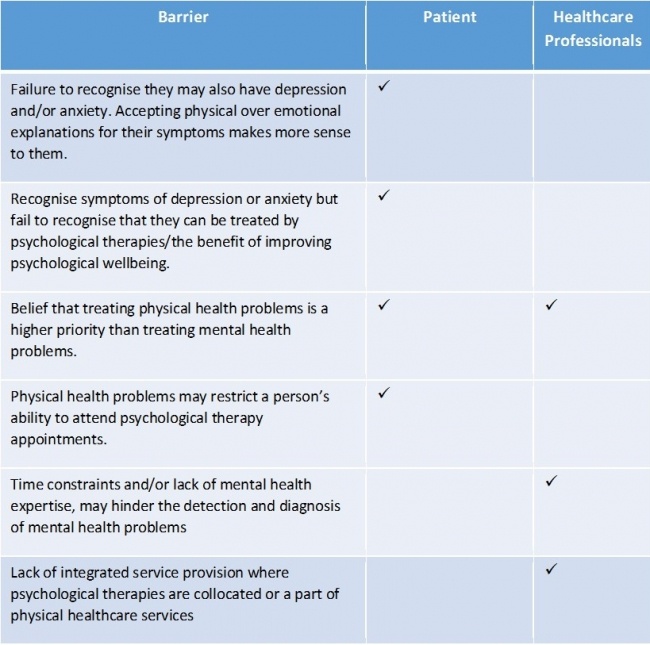If I were to ask you if you know somebody with a chronic physical illness who is also finding things hard and who is maybe feeling low or anxious, chances are you would say yes. The links between physical and mental wellbeing have become all too clear. For example, people living with heart disease are more likely to suffer from depression, and people with depression are at a greater risk of developing heart disease (Nemeroff, 2000)1. Diabetes and depression are another example with almost 25% of individuals living with diabetes also experiencing depression, 2-3 times as many as those without a chronic condition.
The impact
Chronic physical illness can have a life-changing impact on an individual’s wellbeing, functioning and quality of life. Depression and/or anxiety disorders can compound the perceived severity of physical symptoms. They may also interfere with the person’s ability to effectively self-manage thus, leading to poorer health outcomes. People living with co-morbid depression and/or anxiety as well as a Long Term Condition (LTC) typically have increased health service utilisation, which leads to a significant increase in healthcare costs.
It has been recommended in NICE guidelines (2009)2 that patients with chronic physical and co-morbid mental health problems can benefit from interventions such as evidence-based computerised CBT programmes. Such benefits include enhanced quality of life, improved physical, emotional and social functioning, and also significantly less use of healthcare resources. Unfortunately, despite the connection between mental and physical health, many individuals do not receive care that addresses both their physical and psychological needs.
Barriers to accessing psychological service
People living with LTCs often face a number of barriers to accessing psychological therapies. The reasons for this are often complex and in some instances include both patient barriers and barriers for healthcare professionals.

There’s a lot of room for improvement in terms of bridging the gap between mental and physical healthcare and that’s where innovative online mental health solutions such as SilverCloud Health can really help.
Please contact us if you would like to hear more about our new LTC programmes or would like a demo.
References
1) Nemeroff, C. B., & Musselman, D. L. (2000). Are platelets the link between depression and ischemic heart disease? Available at: https://pubmed.ncbi.nlm.nih.gov/11011349/
2) NICE guidelines (2009) : Depression in adults with a chronic physical health problem: recognition & management. Available at: https://www.nice.org.uk/guidance/cg91







